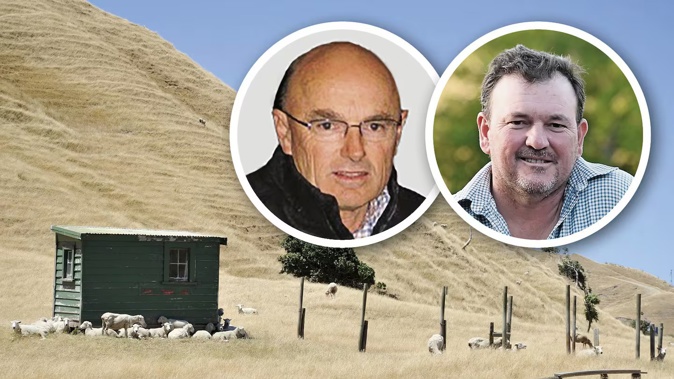
The district needs substantial relieving rain in the next couple of weeks to stave off fears of a potential drought impacting the region, according to farming experts.
Agfirst consultant Peter Andrew said in a season update some farmers would need to start more serious destocking if there wasn’t decent rain soon.
Federated Farmers Wairoa-Gisborne provincial president Charlie Reynolds said the group would prepare for a drought declaration if there was no “significant” rain by Christmas.
“It’s a big word - drought - but we do need some good rain soon,” Andrews said.
“Our sheep and beef farmers are literally feeling the heat right now. The hot temperatures are great for the beach, but not so ideal if you are in the business of growing grass and crops.”
Andrew said the wind and the heat were taking a toll, drying out the soil.
“With the extreme heat and wind comes high and very high evapotranspiration,” Andrew said.
“The dry conditions are, however, highly variable around the district with some lucky farmers getting some decent rain recently. Others have had little relief for a while now.
He said drought had not been on the minds of farmers for the past three summers, as most were trying to avoid a surplus of moisture in the soil during those wet years.
“The Red Bands [gumboots] are taking a well-earned rest.”
Andrew said there were lots of positives to counter growing concerns.
“It was a growthy spring and the farms were very much in a strong position and on the front foot. This strong position is being driven by healthy lambs, good feed covers and reasonably good stock prices for those who need to destock.
“However, it is a good time to have a good think about a ‘what-if plan’ as we all know the weather can be pretty random and cruel at times ... it is a good time to have a plan of attack and to try and bang a few pegs in the ground.”
He said it was important to communicate with all stakeholders, monitor important indicators such as soil moisture, look after young maternal stock and cull early.
Toby Williams, a national board member and meat and wool chair for Federated Farmers, said some parts of the region were the driest they had been for the time of year in almost 10 years.
“We’re seeing dams and springs at levels usually seen in February,” Williams said.
“The coastal side of Gisborne is the most affected. Inland places like Rere, Peheri and so on are in a pretty good shape.”
Williams said feed levels were good without being spectacular.
“It’s hard to remember what this time of the year normally looks like after the last five years of very wet springs,” he said.
“Stock are in great condition, with most people getting through the big jobs of weaning and calf marking. It will also be a relief that farmers can really kick into gear and start repairing their properties now it has dried out enough to safely get machinery where it’s needed on-farm.”
He said stock pricing was excellent and farmers had been taking advantage of much better pricing than last year.
Farmers had reacted to the dry conditions by offloading stock early via the works and store market.
That had put some pressure on store market pricing, but it was handling the larger-than-normal numbers better than expected according to Williams.
“The outlook for the rest of summer is for some rain, which would be most welcome,” he said.
“However, farming was not built off hope and forecast, but good decision-making, so it’s great to see people planning and making decisions well in advance of the critical time.”
Reynolds said farmers needed decent rain before Christmas to keep the grass growing and fill water tanks.
“It’s a little bit early to start talking about a drought, but we are keeping an eye on the moisture levels and certainly if these hot windy days carry on it will have a massive impact on those levels,” Reynolds said.
“If there is no significant rain by Christmas we will be engaging with MPI [Ministry for Primary Industries] to prepare for a drought declaration.”
Take your Radio, Podcasts and Music with you









